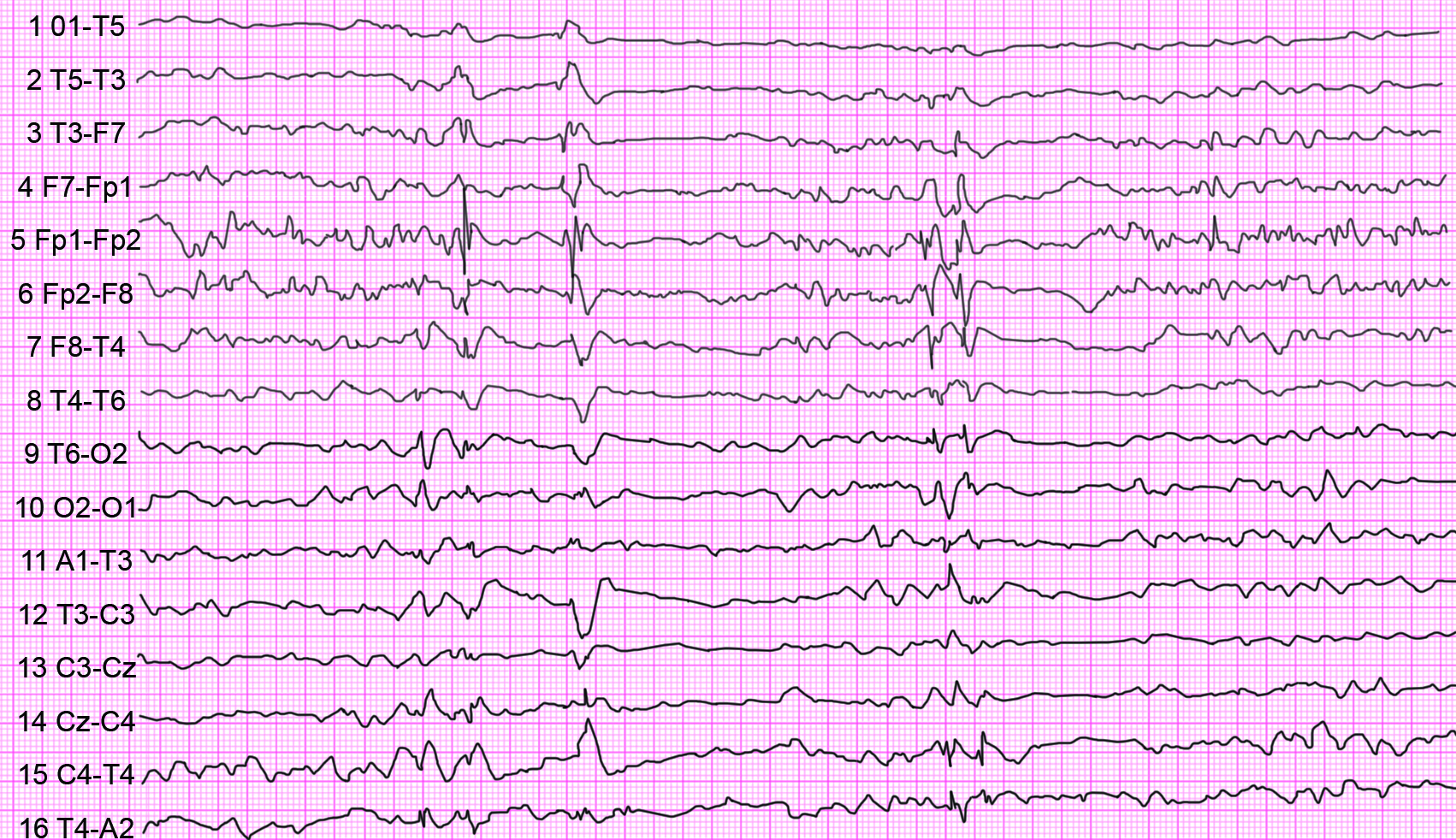LETTER TO THE EDITOR | https://doi.org/10.5005/jp-journals-10071-24073 |
Medium-chain Triglyceride Ketogenic Diet as a Treatment Strategy for Adult Super-refractory Status Epilepticus
1Department of Anaesthesiology and Critical Care, North Eastern Indira Gandhi Regional Institute of Health and Medical Sciences, Shillong, Meghalaya, India
2Department of Neurology, Apollo Institute of Neurosciences, Bengaluru, Karnataka, India
3Department of Neurochemistry, National Institute of Mental Health and Neurosciences, Bengaluru, Karnataka, India
Corresponding Author: Kaustuv Dutta, Department of Anaesthesiology and Critical Care, North Eastern Indira Gandhi Regional Institute of Health and Medical Sciences, Shillong, Meghalaya, India, Phone: +91 9535050421, e-mail: kaustuv.dutta@gmail.com
How to cite this article: Dutta K, Satishchandra P, Borkotokey M. Medium-chain Triglyceride Ketogenic Diet as a Treatment Strategy for Adult Super-refractory Status Epilepticus. Indian J Crit Care Med 2022;26(1):139–140.
Source of support: Nil
Conflict of interest: None
Keywords: Classic ketogenic diet, Hypoxic-ischemic brain injury, Medium-chain triglyceride ketogenic diet, Refractory status epilepticus, Super-refractory status epilepticus.
Dear Sir,
Super-refractory status epilepticus (SRSE) may be defined as status epilepticus (SE) that persists for 24 hours or more after the commencement of anesthetic medications or recurs after termination of anesthesia.1 An emerging treatment modality for SRSE is ketogenic diet (KD), of which the two main types are classic KD (CKD) and the medium-chain triglyceride KD (MCTKD).2,3 Although MCTKD has many advantages over CKD, published data evaluating the effect of MCTKD in adult SRSE are very sparse.
We report a case of an adult SRSE successfully treated with MCTKD. A 35-year-old woman underwent elective lower segment caesarean section (LSCS) at 38 weeks of gestation. About 3 hours postoperatively, she developed sudden onset breathing difficulty, followed by cardiac arrest. She was resuscitated and transferred to the intensive care unit (ICU) where she developed generalized tonic-clonic seizures (GTCS), which failed to respond to lorazepam. In view of uncontrolled seizures, she was shifted to our center for further management. Hypothermia was initiated and maintained for the next 24 hours. Both intravenous and enteral antiepileptic drugs (AEDs) were gradually added. However, she continued to have segmental myoclonic jerks involving extremities despite midazolam infusion. The patient was on six AEDs including, injections levetiracetam, valproate, topiramate, lacosamide, and tablets clobazam and perampanel. Ketamine infusion @ 5 mg/kg/hour was started. This helped to achieve burst suppression but electrographic seizures appeared with every attempt to decrease the anesthetic drugs (Fig. 1). MRI brain revealed moderate-to-severe hypoxic brain injury. The patient was diagnosed as a case of SRSE due to hypoxic-ischemic brain injury (HIBI). Initiation of KD was considered on the 14th day of admission (day 0). Lipid profile and serum electrolytes were found to be normal. Urinary ketosis was achieved on day 3. Following this, MCTKD was initiated. The Ryles tube feeds consisted of sugar free soya milk with MCT oil. The myoclonic jerks reduced significantly by day 5 and stopped completely by day 10. The glucose, serum electrolytes, arterial blood gas, triglycerides, and urinary ketosis were closely monitored during this period. She was weaned off the midazolam and ketamine infusion by day 12 and maintained on five AEDs without seizure. She was weaned off the ventilator on day 15 and referred to a neurorehabilitation center. The MCTKD was continued for 3 months without any significant adverse effects, except for a weight loss of around 5 kg.

Fig. 1: EEG showing generalized and focal epileptiform activity with spikes and polyspike and wave activity along with diffuse slow background
SRSE poses a serious challenge to the treating intensivists. The high mortality and morbidity associated with the condition increase the need for safe and effective treatment modalities. KD is a diet having high fat with low carbohydrate and protein content, typically in the ratio of 3:1 or 4:1. MCTKD is more ketogenic and allows larger carbohydrate and protein portions, making it more appetizing.4 Compared to CKD, which is associated with persistent hypertriglyceridemia, MCTKD is associated with significantly lower total cholesterol/high-density lipoprotein (HDL) ratios as it is metabolized faster.3,4
Prasoppokakorn et al. reported the first successful treatment of adult SRSE using MCTKD.3 It has been postulated that MCTKD can increase seizure threshold and stop the onset of seizures by direct inhibition of AMPA receptors and alteration of cellular energetics through mitochondrial biogenesis.5
To best of our knowledge, this is the first report of successful treatment of SRSE due to HIBI using MCTKD from India. Our patient showed almost total resolution of seizure without any significant adverse effects. This suggests that MCDKD can be a safe and feasible treatment option for SRSE in adults due to HIBI.
ORCID
Kaustuv Dutta https://orcid.org/0000-0002-5749-3761
Parthasarathy Satishchandra https://orcid.org/0000-0003-4334-1342
Monjuri Borkotokey https://orcid.org/0000-0002-9890-7561
REFERENCES
1. Shorvon S, Ferlisi M. The outcome of therapies in refractory and super-refractory convulsive status epilepticus and recommendations for therapy. Brain 2012;135(8):2314–2328. DOI: 10.1093/brain/aws091.
2. Thakur K, Probasco J, Hocker S, Roehl K, Henry B, Kossoff E, et al. Ketogenic diet for adults in super-refractory status epilepticus. Neurology 2014;82(8):665–670. DOI: 10.1212/WNL.0000000000000151.
3. Prasoppokakorn T, Jirasakuldej S, Lakananurak N. Medium-chain triglyceride ketogenic diet is effective for treatment of an adult with super-refractory status epilepticus: a case report and literature review. Eur J Clin Nutr 2019;73(12):1594–1597. DOI: 10.1038/s41430-019-0471-4.
4. Liu Y, Wang H. Medium-chain triglyceride ketogenic diet, an effective treatment for drug-resistant epilepsy and a comparison with other ketogenic diets. Biomed J 2013;36(1):9. DOI: 10.4103/2319-4170.107154.
5. Augustin K, Khabbush A, Williams S, Eaton S, Orford M, Cross JH, et al. Mechanisms of action for the medium-chain triglyceride ketogenic diet in neurological and metabolic disorders. Lancet Neurol 2018;17(1):84–93. DOI: 10.1016/S1474-4422(17)30408-8.
________________________
© The Author(s). 2022 Open Access This article is distributed under the terms of the Creative Commons Attribution 4.0 International License (https://creativecommons.org/licenses/by-nc/4.0/), which permits unrestricted use, distribution, and non-commercial reproduction in any medium, provided you give appropriate credit to the original author(s) and the source, provide a link to the Creative Commons license, and indicate if changes were made. The Creative Commons Public Domain Dedication waiver (http://creativecommons.org/publicdomain/zero/1.0/) applies to the data made available in this article, unless otherwise stated.